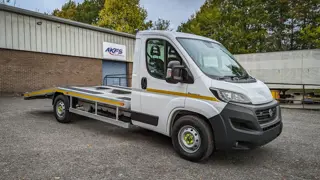This year could go down in history for the automotive industry, for the most unusual reason, writes AM's regular columnist Professor Jim Saker, emeritus professor of Loughborough University's business school and president of the Institute of the Motor Industry.
The retail automotive sector in 2024 is going to be one of the most fascinating for years. Usually, we have some idea as to the parameters and expectations of how the market is likely to develop with most observers having some insight as to the level of supply and potential demand.
To the best of my knowledge this year is historic in that it is the first time that a UK Government has actually aimed to fine companies for selling what in their eyes is the wrong range of vehicles within their product portfolio.
The 22% EV requirement as part of the Net Zero mandate with its £15k per unit penalty is unique for our sector. In the past taxation and subsidy incentives have been used as a way of encouraging both customer but also manufacturer behaviour. Penalties have been used as part of the Common Agricultural Policy and Fishing Quotas but never specifically when it comes to directly impacting customer choice.
There is obviously ‘wiggle room’ to buy credits and trade forward to avoid the penalty but inevitably there will be a distortion of the market.
The challenge is that for many national sales companies a lot of time will be spent monitoring numbers. The strategies that seem to be being adopted include putting all company staff into EVs and pushing the cars within the Motability offering. The most challenging aspect will be when some brands are having to supply less non-EV cars into the market to keep the ratio balanced correctly.
This last factor has the potential to limit the size of the overall market for the coming year.
With the Government failing to hit the target for the number of charging points on motorways, a target which ironically, they don’t get fined for failing to achieve, there is still a resistance from the general motoring public to commit to buying EVs.
Unlike in other countries there are no general Government incentives at the moment to go electric which has meant that the majority of vehicles are going into company car schemes.
With the cost of insuring EVs going up 72%, plus the skills gap in areas such as servicing there remains a level of psychological dissonance in the minds of many when it comes to moving to EVs. This is coupled to the obvious issue that battery technology is rapidly changing and that anything purchased now will potentially be regarded as out of date and inefficient when solid state batteries come in the next couple of years.
We are left with a number of imponderables. A pre – election budget might make an impact.
A general election with the possibility of a change of Government, a potential limit on non-EV vehicles just three factors that mean projecting our sector is more crystal ball than informed forecasting.




















Login to comment
Comments
No comments have been made yet.